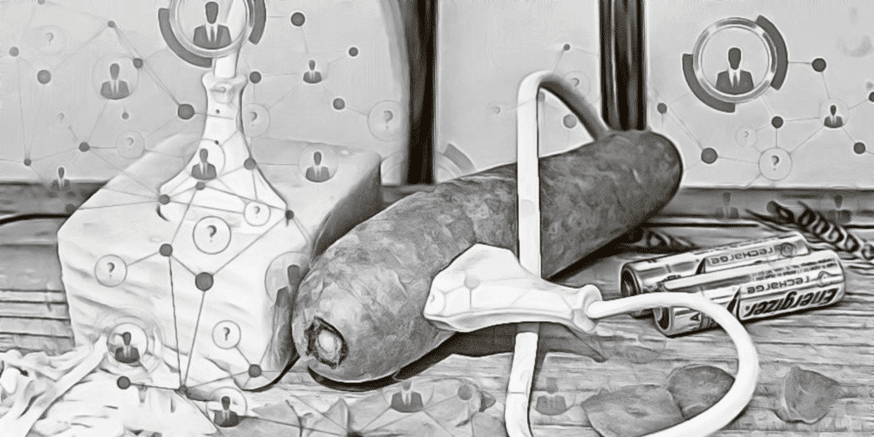We are building mountains. But not the stunning natural wonders that you may think of. No, instead, we are building mountains of trash, and it’s getting worse. As the population of the Earth continues its steady ascent, The World Bank Group estimates that waste generation will reach 2.2 billion metric tons of rubbish by 2025. Unfortunately, man doesn’t quite have that magic painting touch that nature does.
If the sight weren’t enough, many of these landfills have become dangerous to deal with. Landfills are toxic hubs which leak poisonous materials into the ground and nearby water sources. They also create negative greenhouse effects.
Now, with the arrival of decentralized technology that Bitcoin pioneered, companies are looking to blockchain for meaningful solutions. Blockchain waste management is an up-and-coming field that could save companies millions and care for the environment at the same time. The potential for a win-win scenario has arrived. But potential is just a word. Is anyone out there turning opportunity into a real-life solution?
Plastic Waste
The plastics industry is, unfortunately, built entirely around the throwaway mentality. After all, that’s what brings in the cash. Research suggests that 8.3 billion metric tons of plastic have been produced since the middle of the 20th century, and an astonishing 60 percent of this has ended up in landfills. Clearly, this kind of business model is unsustainable for the Earth.
However, blockchain recycling companies, like The Plastic Bank, are challenging the status quo. The Plastic Bank follows a process in the spirit of blockchain by incentivizing the collection of used plastic in exchange for fiat money and services like cellular airtime or cryptocurrency.
To this end, the Plastic Bank is partnering with IBM to develop the blockchain tech needed to build a global, scalable recycling solution. Here’s a sneak peek at their upcoming blockchain recycling app:
[youtube https://www.youtube.com/watch?v=avJsgPu5Hkg]
Electronic Waste
According to the International Telecommunications Union, it is estimated that a whopping €55 billion ($47 billion) has been lost to electronic waste. The biggest contributor of value is gold, which is used in the construction of a wide variety of electrical components.
Technology improves at an alarming pace and, as a result, products become obsolete in only a few years. Most customers don’t know how to properly dispose of their electronic waste. This, unfortunately, means that most of it ends up in landfills.

It’s interesting to note from the above chart that while plastics take second place in value terms, the sheer volume of waste once again highlights the need and the opportunity for blockchain projects to make the biggest dent.
It also appears that no serious blockchain contenders are gunning for this lucrative recycling opportunity in raw materials. Of course, the savvy blockchain entrepreneur should know by now that metal mining is a highly centralized game. Large established interests will most likely want to get in on the action first.
Innovative Blockchain Ideas
Waste Sharing Initiatives
Our current model of waste management means we centralize trash in landfills. This creates a concentration of waste which produces methane as a by-product. Methane is more harmful to the environment than carbon dioxide, up to 25 times in fact. If we were to distribute our waste among the population we would be able to achieve a couple of key benefits: the waste would decompose quicker, and we could create fertilizer for local gardening projects.
Blockchain for the environment is not necessarily just a tech-based solution. By sharing responsibility and knowledge of recycling efforts we can imitate what the most powerful cryptocurrency networks are already doing.
On the other hand, kicking the proverbial trash can down the road does not make our waste go away, it simply delays the inevitable.
Waste Delivery
A decentralized approach will no doubt cause some existing companies to become obsolete. But this is the price of progress. And let’s be honest, many of them are paid to cut corners, not take care of the environment or community at large.
As these players disappear we can expect new opportunities to rise in their place, one of which would be waste delivery. That may not sound like an enterprising business but given the huge volume of rubbish we’ve already created, smart blockchain projects could distribute and decentralize the waste from these previously concentrated areas and make a good chunk of change in the process.

To achieve these ideas we need to tie them up with the incentives that blockchain champions: payment for doing work. We don’t live in a completely altruistic world, yet if people are rewarded for doing good then they sure will stick around to continue doing it!
Closing Thoughts: Blockchain Waste Management for the Masses
There are a number of waste management sectors for which blockchain based projects could bring some real benefit. A notable addition is in the household and industrial waste sector. While a number of ICOs are, in fact, launching to address this, the cryptocurrency community remains cautious. Revolutions are built on the back of action, not promises.
Our world is on a collision course with disaster if we don’t change our habits. Blockchain will certainly have an important role to play in helping us get there. But blockchain is just a technology and technology can be used for great evils or for the common good. Consequently, if blockchain truly is going to change the world then it would appear that we first need to change ourselves.
Countries like Sweden are leading the pack as they recycle nearly 100 percent of all household waste. Their recycling plants are so efficient that they even have to import waste to operate at maximum capacity. By combining both the mind-shift to recycle with the technology that blockchain waste management solutions can provide, we may just have a chance to prevent the sort of apocalyptic future we so often see on TV.
[thrive_leads id=’5219′]






